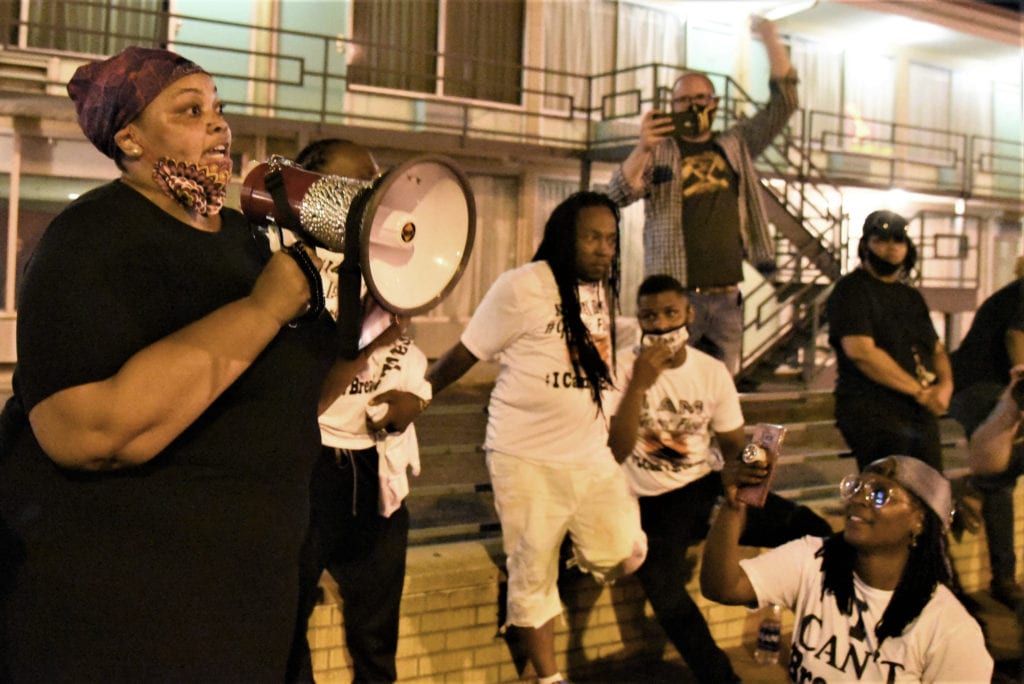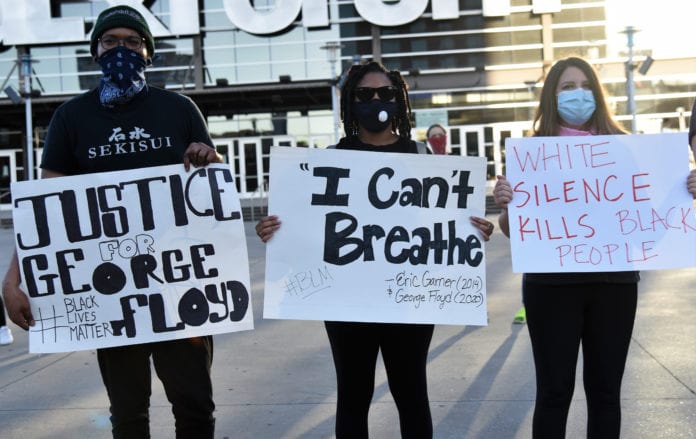Racism is now a pandemic in Shelby County.
The pronouncement was made after Shelby County Board of Commissioners adopted a resolution to combat the problem with specific policies, Monday (June 22).
The measure, written by Commissioner Tami Sawyer, spells out that the purpose of declaring race a pandemic is to “unequivocally defend minorities and enact polices that eradicate the effects of systemic racism affecting Black people, and other minorities, throughout Shelby County.”

The resolution’s approval comes on the heels of national civil unrest after the death of George Floyd, a 46-year-old Black man killed by a white Minneapolis police officer May 25.
The global outrage over Floyd’s death and the deaths of other unarmed Black men and women by police officers has put a laser focus on systemic racial issues affecting African Americans.
Sawyer pointed to some of the issues in the resolution, including health disparities highlighted during the current COVID-19 health crisis.
The resolution includes this reference:
“Across the country, demonstrators are protesting the death of George Floyd and the ongoing systemic racism woven into the fabric of the United States. The protests come in the middle of an unprecedented pandemic disproportionately killing people of color — particular Black Americans and the close proximity of people protesting likely to create a spike in Coronavirus infections.”
Health officials have found that COVID-19 affects African Americans at strikingly disproportionate rates.
In Shelby County, more than 8,000 people have tested positive for COVID-19 since the start of the pandemic. Nearly 60 percent of the cases are African Americans. The racial demographic also counts for approximately 60 percent of fatalities, while White Shelby County residents account for 32 percent.
“Public health organizations such as the American Psychiatric Association, American Pediatric Association, American Physician’s Association — three major medical organization have said that racism is a public health crisis and a pandemic in the United States,” Sawyer said in defense of the resolution.
She also pointed to Shelby County Health Director Dr. Alisa Haushalter’s agreement on the issue. Haushalter has publicly noted that it is “accurate to call racism a pandemic.”

While most commissioners were in agreement with the resolution, Commissioner Amber Mills, who pointed out that she’d discussed the notion with people of all races within her district, said she fears it will drive businesses away from the county.
“Has the economic impact of this been considered?” she asked.
Sawyer offered a rebuttal.
“It doesn’t drive businesses away to name something that you already know is true and that we’re working towards in reducing and solving every day,” she said.
“What it does allow us to do is be creative and innovative in addressing the racism that exists in our policies and actions in Shelby County and in the municipalities and the city of Memphis.”
The resolution sets a backdrop of Jim Crow laws and is fueled with references of police brutality that underscore the deaths of Eric Garner, Tamir Rice, Mike Brown and others who have been killed by police in other states.
Sawyer said Shelby County is not excluded from the racial discrimination.
“These aren’t hot ticket items or things in the news,” she said. “As I’ve stated week after week, these are the lives that we live as Black people in this city. These are the lives that Brown people are living in this city and county. These are the lives that Asian Americans are living in the city and county.”
The resolution passed with opposition from only two commissioners – Mills and Mark Billingsley, who chairs the board. Commissioner Brandon Morrison was not present for voting.
Also on Monday, the commission adopted “8 Can’t Wait,” an initiative that seeks to reduce the use of police force. Based on a national initiative, the resolution was written in conjunction with the Memphis City Council.
The commission also voted to make Juneteenth (June 19) an official paid holiday for county employees, beginning in 2021.
With three key resolutions passing that specifically target minorities and systemic racism, Sawyer referred to the measures as “moving the needle in racial equity.”



